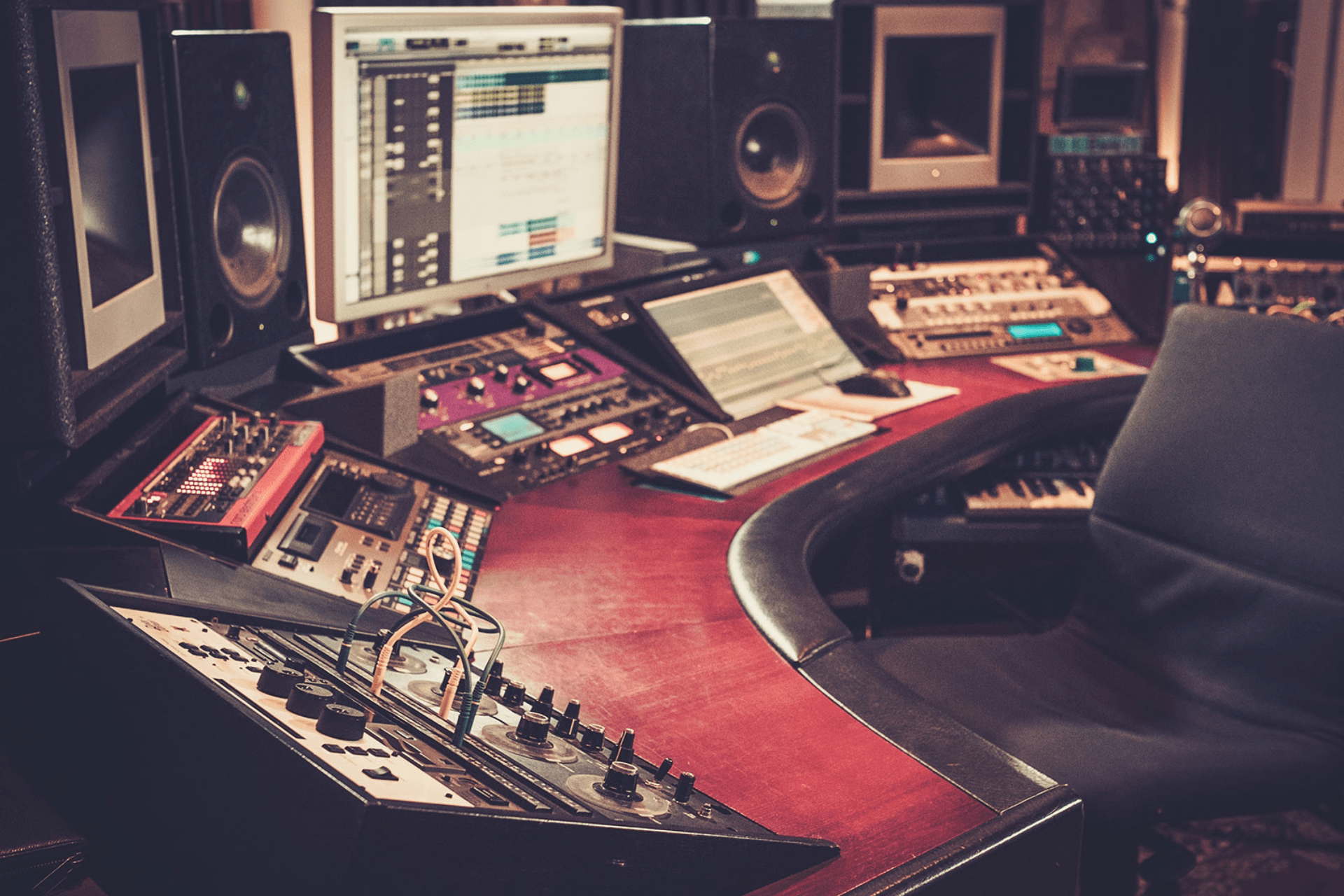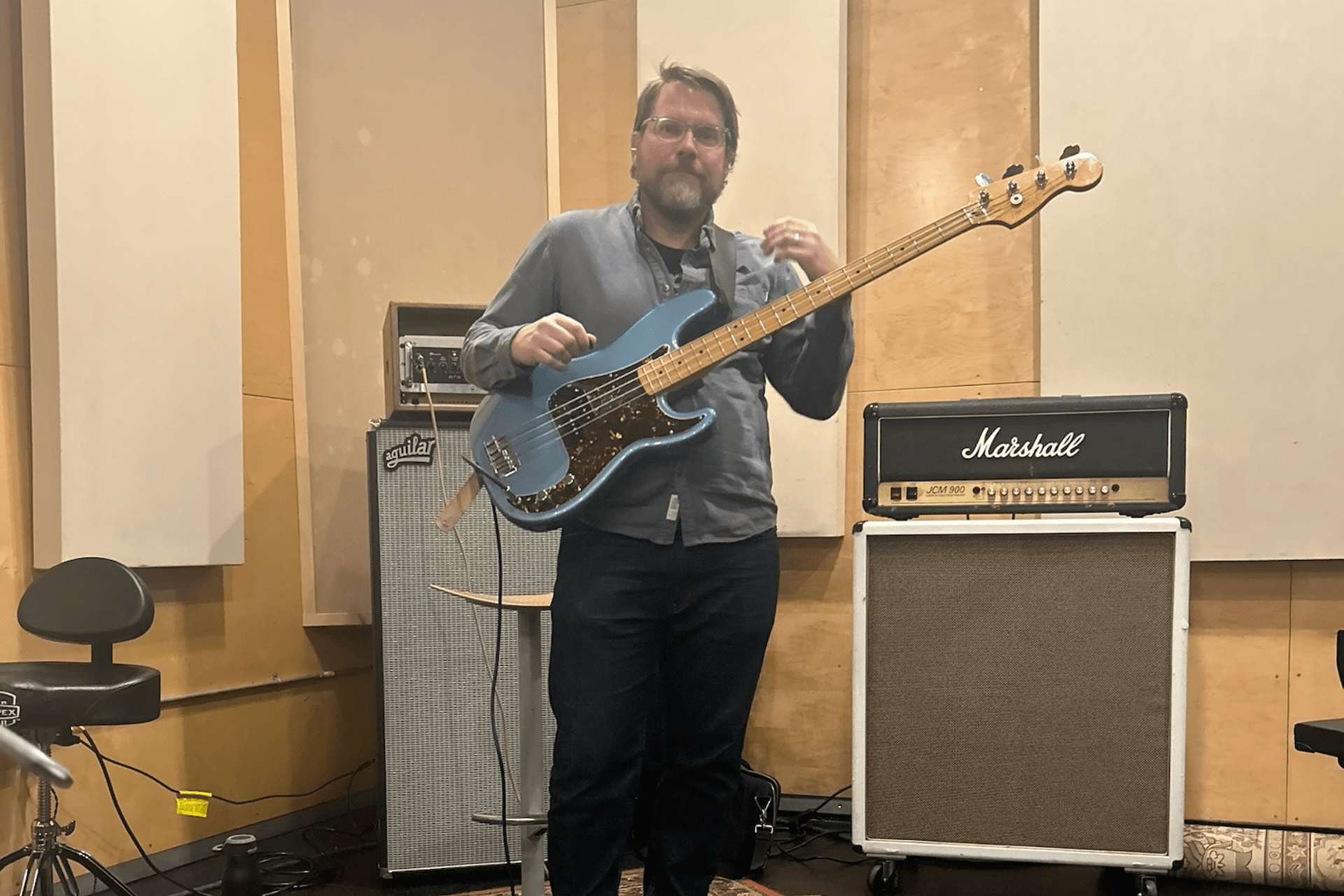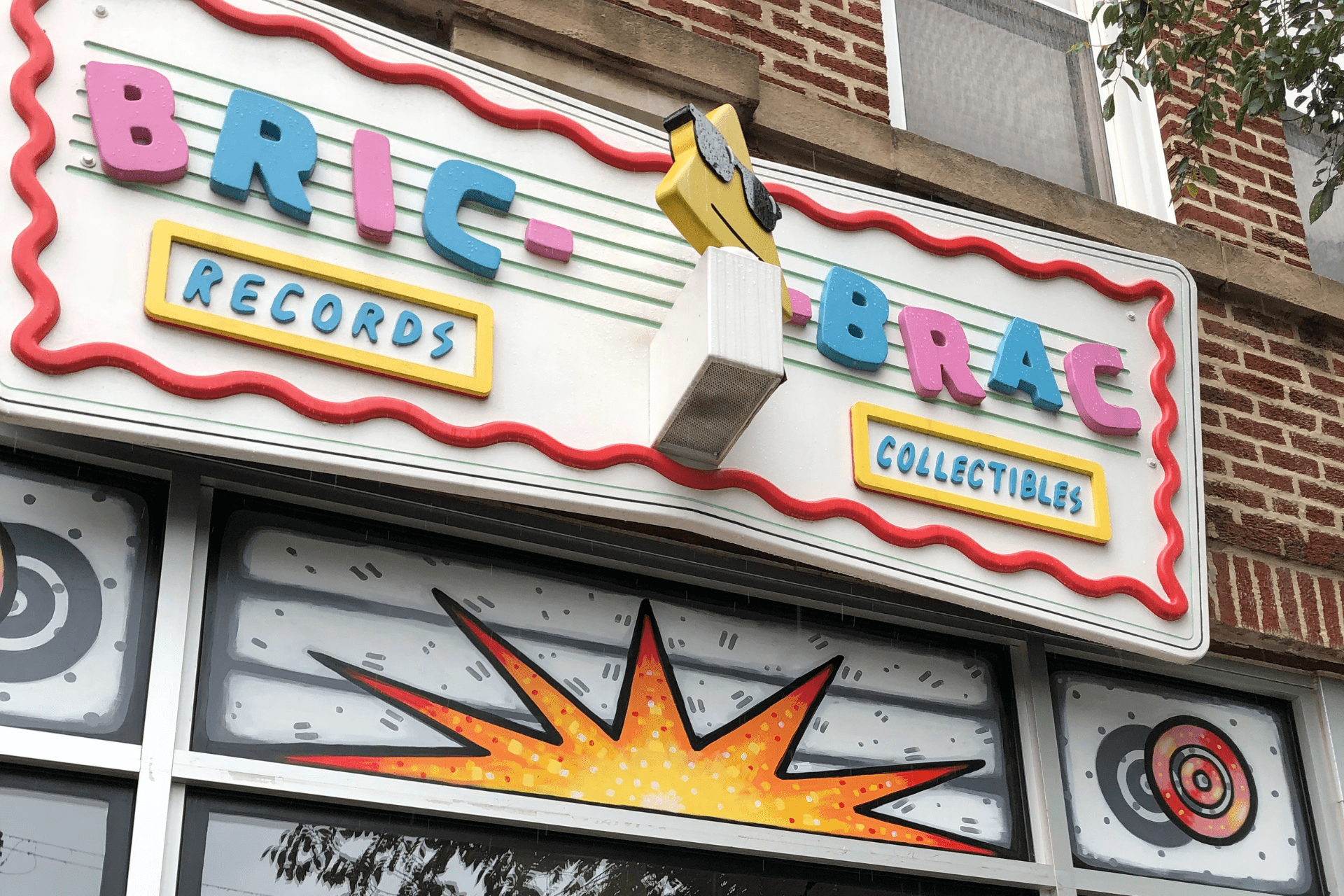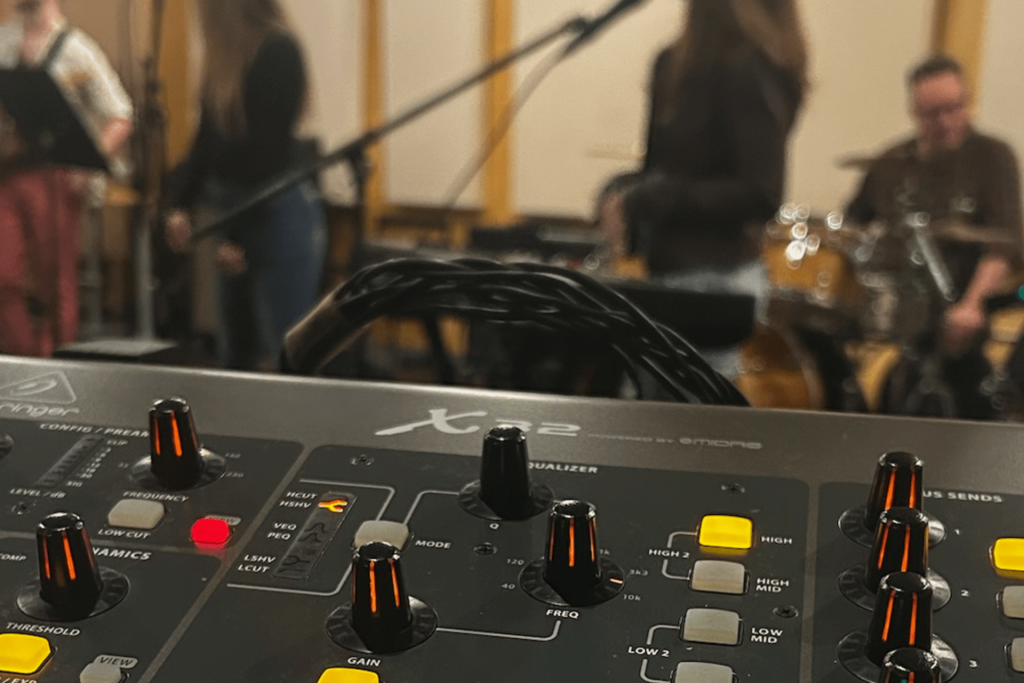You’ve written the songs, tightened the band, and now you’re staring down the big question: how much does it cost to record an album?
Every artist hits this point. You’ve got the heart and the music, but the numbers? They can feel like a mystery. Before you book a studio or start draining your savings, you need a real breakdown of what to expect. Let’s walk through exactly what you’re signing up for.
Cost Factors That Impact Recording an Album
Recording an album requires a lot of moving parts, and they all come with a price tag. Where you record, how you prepare, who you work with, and how you release the final product all shape the final bill.
Knowing what factors drive the costs helps you set a realistic budget before you even step into the studio. Let’s break it down phase by phase so you can see exactly where the money goes—and where you can make wise choices without cutting corners.
Factor #1: Pre-Production Costs
Before you hit the big red record button, there’s a lot of work to do. Pre-production is where you get your songs, sound, and team locked in, so your actual studio time doesn’t turn into an expensive game of “figure it out.”
-
Gear and Equipment
You might already have your main instrument. But recording often demands more: amps that won’t buzz under pressure, a backup guitar that holds tuning better, better drumheads, or rental microphones if you’re recording at home. Depending on your setup, you could spend a few hundred to a few thousand dollars just to make sure your gear can hang.
-
Rehearsal Space
You want to walk into the studio knowing your parts cold. Renting a rehearsal space is a small cost upfront that saves a lot later. Expect to pay around $15–$30 an hour in most cities. Even a few sessions before recording can make a huge difference in how tight you sound—and how fast you get it done.
-
Pre-Production Meeting
Working with a producer? You’ll probably have a few meetings before recording starts. These sessions are where you pick songs, talk arrangements, and map out your goals for the album. Some producers roll these into the overall fee; others charge separately. If they do, expect anywhere from $50 to $150 per session.
-
Demo Recording
Recording rough demos at home or in a cheap studio helps work out the kinks before you start burning studio time. Some bands knock this out on their phones. Others book a recording studio for a basic demo session for $100–$300. Either way, it’s way cheaper to find mistakes early than fix them later when the meter’s running.
Factor #2: Production Costs

Rates vary like crazy depending on where you’re recording and what’s included. Low-budget studios might run $30–$50 an hour. Mid-tier studios often charge $75–$150 an hour. Top-shelf rooms in big cities can hit $200 or more. Most studios also offer day rates if you’re booking longer sessions, which can save you a little cash.
-
Working with a Sound Engineer
Sometimes studio time includes an in-house engineer. Sometimes it doesn’t. A good engineer is worth every penny. They’ll handle mic placement, session setup, troubleshooting, and making you sound your best. If you’re hiring separately, expect to pay $30–$100 per hour, depending on the experience.
-
Session Musicians (If Needed)
If you need a drummer, backup vocalist, or pedal steel wizard to round out your sound, you’ll need to budget for them too. Session musicians usually charge per song or per session. Rates can range from $100–$500 per track, depending on the musician and the market.
Factor #3: Post-Production Costs
Once you’ve captured all the tracks, the work isn’t over. Now it’s about making it sound polished and professional.
-
Mixing and Mastering
Mixing—balancing levels, EQing tracks, adding effects—usually costs between $100 and $1,000 per song, depending on who’s doing it. Mastering, which preps the final audio for release, adds another $50–$200 per track. Some engineers bundle mixing and mastering into a package deal.
-
Artwork for the Album
Unless you’re a graphic designer too, you’ll need help here. Custom album artwork typically runs $200–$1,000, depending on the artist. Cover art matters more than you think—it’s the first thing listeners see, whether it’s on Spotify or a vinyl sleeve.
-
Physical Formats: Vinyl, CD, and More
Pressing physical copies costs real money. CDs are cheaper—expect $1–$2 per unit if you order in bulk. Vinyl is pricier: $1,500–$3,000 for 100–300 copies, depending on color, packaging, and weight.
-
Publicity and Promotion
Making a record is one thing. Getting people to hear it is another. PR campaigns, music video production, social media marketing, and playlist pitching all require a budget. Some indie artists budget $500–$5,000 for post-release promotion, depending on how wide they want to go.
DIY Recording vs. Professional Studio

There’s a difference between getting it recorded and getting it right. A professional studio brings gear you don’t have, rooms built for sound, and engineers who know how to pull the best out of your performances.
DIY setups are great for demos, rough EPs, or experimentation. But if you’re putting out an album you want people to take seriously—one that competes with everything else out there—cutting corners on recording can end up costing you more in the long run.
5 Budgeting Tips for Recording Your First Album

#1. Know exactly what you’re recording.
Are you tracking a full 12-song album, or would a tight 5-song EP hit just as hard? More songs mean more hours, more mixing, more everything. Keep your tracklist realistic if you’re working with limited funds.
#2. Rehearse like your life depends on it.
Every mistake you fix in rehearsal saves you expensive studio hours later. If you’re not 100% ready, you’re paying to practice—and trust me, the clock moves fast once you’re in the booth.
#3. Get your gear sorted ahead of time.
If you’re missing a solid mic, a dependable bass amp, or even extra strings and cables, buy or rent them before you show up. Studios often have backup gear, but relying on that can slow down your session or add rental costs you didn’t plan for.
#4. Leave room in your budget for post-production.
Mixing, mastering, artwork, and even a few hundred bucks for marketing can make the difference between a project that lives forever and one that just disappears after a couple of Spotify streams.
#5. Pad your budget a little.
Something always costs more than you think. Build in a cushion for overtime, extra revisions, or unexpected needs. You’ll thank yourself later.
How Much Does It Cost To Record an Album: FAQs
How much does it cost to get an album recorded?
The cost to record an album typically ranges from $2,000 to $20,000 or more, depending on factors like studio choice, number of tracks, production quality, and whether you hire session musicians or outside producers. DIY home recordings can cost less, but professional studios and full production can push the total much higher.
How much does it cost to record an album?
If you’re asking about recording a record album, costs generally fall between $2,000 and $15,000 for indie projects. If you mean buying a physical album, new vinyl records usually cost $20 to $40, while CDs typically run $10 to $20, depending on the artist and packaging.
What is the most expensive album ever recorded?
The most expensive album ever recorded is widely considered to be Guns N’ Roses’ Chinese Democracy, which reportedly cost over $13 million to complete. It took more than a decade to finish and involved countless producers, studios, and lineup changes.
How much does a producer get paid for an album?
Producers can be paid either a flat fee or a percentage of the album’s sales. A flat rate usually ranges from $2,000 to $20,000 per project for indie albums, while top-level producers working with major artists may charge $50,000 or more, plus points (a share of royalties).
Submit Your Demo to Hardstop Records!
We listen to every demo with real intent—because we’re artists too, and we know how much it matters. If you’re ready to take the next step with a label that actually cares about your sound, submit your demo today.


